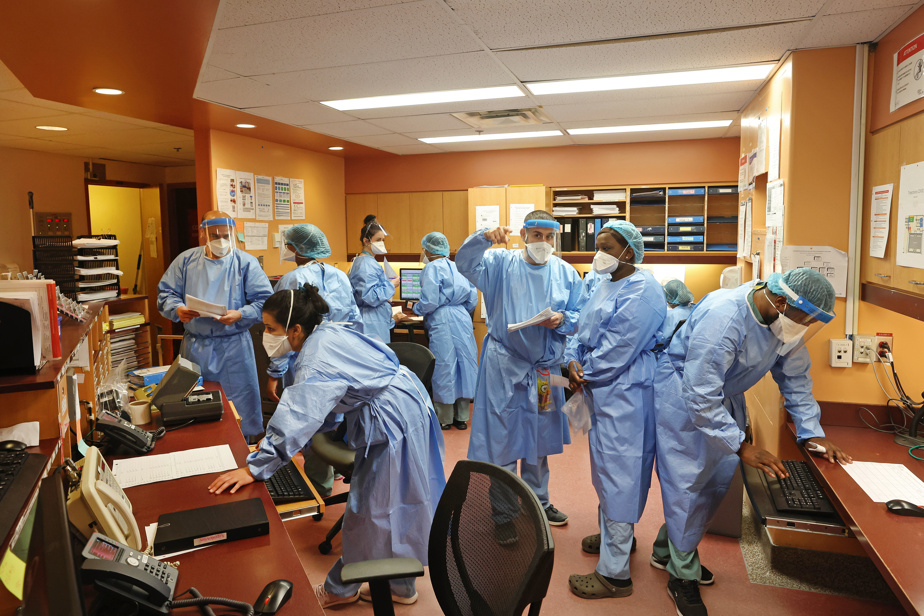(Montreal) Already exhausted and outnumbered, Quebec nurses fear a “very difficult” summer. They challenge the Minister of Health, Christian Dubé, and ask him to commit to supporting them now.
“Summer comes back year after year, but each time, it seems like we’re never ready to face it, and that’s why we’re calling on Minister Dubé today,” said Julie Bouchard , president of the Fédération interprofessionnelle de la santé du Québec (FIQ), at a press briefing in Montreal on Wednesday morning.
Ms. Bouchard called on the Minister to do “upstream work” to ensure the quality of services to the population as well as a healthy work environment for nurses.
“Summer vacation has been adopted and confirmed since April. But we know that the ministry is not ready. There are fears of a considerable increase in compulsory overtime, and that some leaves which have been requested months in advance will be refused. Again at the last minute, we know. »
Concretely, the nurses want an improvement in the predictability of the schedules and that the employers put an end to the coercive measures.
Minister Dubé’s office explains that the summer period brings additional challenges each year.
“We want to continue to offer the services, while giving a well-deserved vacation to all of our staff. We know it and we will never compromise on it, ”we react.
The firm notes that the CEOs of each establishment are responsible for showing predictability in the organization of the work of their teams in order to ensure stability of the care offered this summer.
“The biggest difference with other years is that there are now alternatives to emergencies that exist and that will be maintained all summer, such as 811, the pediatric line or the front line access window. We invite the population to use these services that work before going to the emergency room. This takes the pressure off our hospitals, and therefore on our staff. »
The labor shortage has increased recently. The MSSS is looking for 6,500 nurses, just over 5,000 beneficiary attendants and nearly 300 respiratory therapists.
To ensure the service, 8.6% of the hours worked are overtime.
Still, the pressure on the health network has been decreasing since this winter. ERs receive an average of 9,500 visits per day, slightly less than the pre-pandemic volume. ER occupancy is 107%, down from a peak of 131% this winter.

